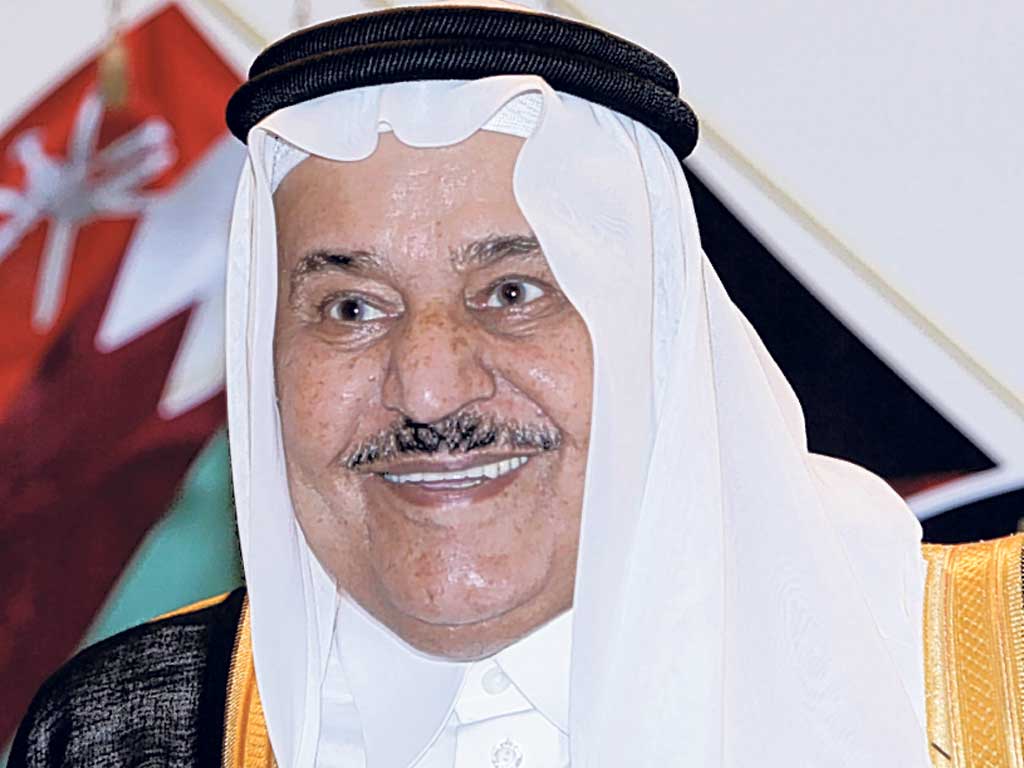Crown Prince Nayef bin Abdulazizal-Saud: Hardline heir to the Saudi throne

Although once described as impish in private, the Crown Prince of Saudi Arabia spent a lifetime at the head of the country's security apparatus, a stern opponent of all things radical, liberal, reformist or female. Crown Prince Nayef bin Abdulaziz al-Saud, heir to the throne of Saudi Arabia, was at the heart of its security for decades, opposing not only security threats but also any serious moves towards reform.
As Interior Minister he wielded huge influence through the policing and intelligence agencies, once describing himself as the country's "first soldier". He had a reputation for ruthlessness.
Mourners at his funeral, in the Grand Mosque in the holy city of Mecca were led by his half-brother, King Abdullah, who in October last year designated him as Crown Prince and heir to the throne of the oil-rich nation. Abdullah, who is 88, has yet to designate a new Crown Prince, but his successor will certainly come from within the Saud family, which is enormous in terms of size, power and wealth. International interest is now focussed on whether the successor will be drawn from the same generation, or whether a younger family member will be nominated.
The Arab Spring has yet to impact greatly on the Saudi kingdom, inpart because Nayef moved so rigorously against any stirrings of opposition. The question now is whether therulers can maintain control following Nayef's death and Abdullah's eventual departure.
Nayef was born in around 1933, a year after Saudi Arabia had come into being as a state under his father, King Abdulaziz Ibn Saud, who through a mixof warfare and diplomacy had united the Bedouin tribes and gained control over the holy Islamic sites of Mecca and Medina. Nayef was one of the "Sudairi Seven", sons his father produced with his favourite wife, Hassa bint Ahmed al Sudairi. He was educated at the "Princes' School" in Riyadh, where religious teachers impressed on their royal pupils the importance of the Koran and Islamic law.
The beliefs Nayef absorbed there stayed with him all his life, meaning that he was closer than most of his brothers to the Wahhabi religious establishment which conferred legitimacy on the royal family. The deeply conservative Wahhabi ideology includes strict segregation of the sexes, enforced prayer times and capital punishments which include beheadings.
His career took off rapidly. Before he was 20 he had become governor of the Riyadh region before he was switched to the security world, quickly joining the cabinet as Interior Minister, a post he held for many years. In this role he gave the clergy considerable scope to impose strict conservative laws.
He proved a reasonably able functionary, adept at installing his supporters in important posts and tightly controlling a number of security and police agencies. A US diplomatic cable which emerged through Wikileaks described him as "elusive, ambiguous, pragmatic, unimaginative, shrewd and outspoken."
He drew criticism, however, when his supposedly all-pervasive security apparatus failed to prevent militants taking over the Grand Mosque in 1979 for a siege which lasted two weeks. But his harsh clampdown which followed helped to restore his hard-line reputation as a strongman.
His clampdowns were directed not only against extreme element but also against liberal opinion and campaigners for political reforms. He is said to have responded to pleas for change with the forbidding phrase: "What we won by the sword, we will keep by the sword."
In the Wikileaks material he was described as "a firm authoritarian at heart" who defined his role as "purging aberrant ideas, promoting a vision for Saudi society under the slogan of 'intellectual security'."While, according to the American report, King Abdullah favoured dialogue and the tolerance of differences, this was not Nayef's way.
He seriously displeased Washington after the 9/11 New York attacks by initially refusing to accept that any Saudi nationals were involved, instead alleging that the incident was the work of Jews. In fact 15 of the 19 hijackers had Saudi connections, but it was more than a year before he acknowledged this.
The US also complained that he was reluctant to co-operate in moves against al-Qa'ida. Nayef snapped out of his initial state of denial, however, when a terrorist campaign was launched in Saudi Arabia itself; attacks on oil installations and foreigners took place berween 2003 and 2006.
Nayef waged a three-year war against the bombers, taking personal charge of what the former US Ambassador to Saudi Arabia, Charles Freeman,described as a "brutally efficient" counter-terror campaign. Hundreds ofsuspects were rounded up with scant regard for human rights. Within three years al-Qa'ida elements are saidto have been eradicated from the country; many fled to Yemen, with Nayefassisting the authorities there against them. All this enhanced Saudi Arabia's standing in the international community, greatly improving relations with the US.
Unsurprisingly, Nayef viewed the Arab Spring as a potential major menace to his family's power, arresting demonstrators whom he denounced as "evil people who want to make the kingdom a place for chaos". The Saudis were helpful to other regimes who faced unrest, sending troops to Bahrain to help deal with protests there.
Crown Prince Nayef bin Abdulaziz al-Saud, politician: born Ta'if, Saudi Arabia 1933; married several times (c. 10 children); died Geneva 16 June 2010.
Join our commenting forum
Join thought-provoking conversations, follow other Independent readers and see their replies
Comments